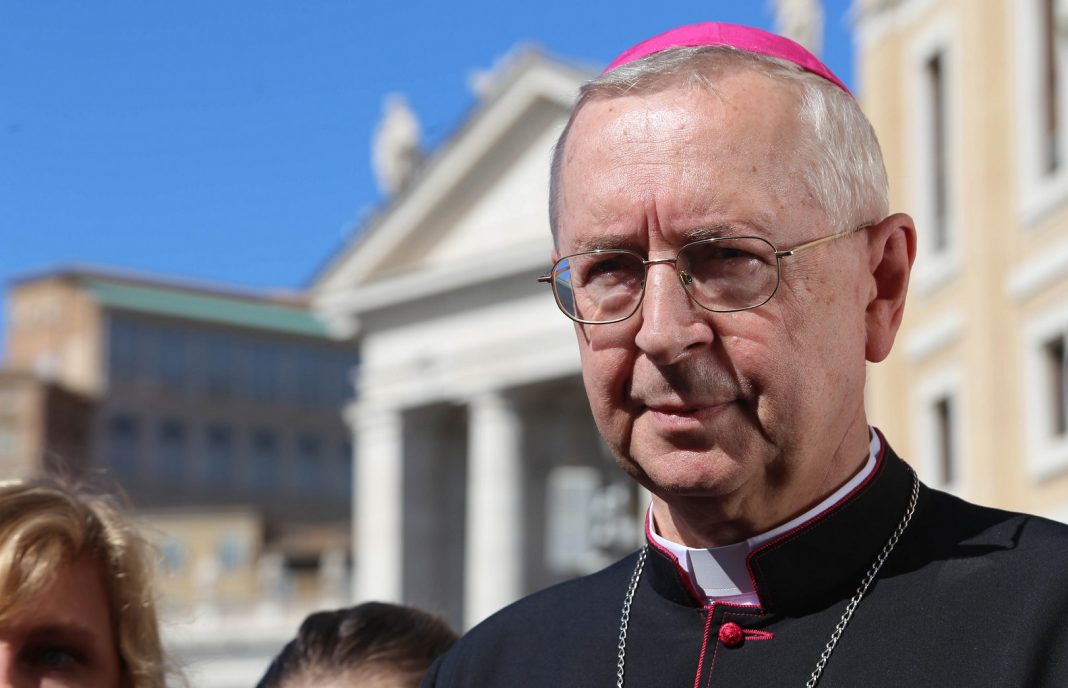Pope Francis drew attention to the speech of Archbishop Stanisław Gądecki, President of the Polish Bishops’ Conference, on the “Post-Modernist Totalitarianism that Is Killing the Souls of the Young.” Archbishop Gądecki delivered it on Tuesday, October 9th, during the Synod of Bishops on youth.
Speaking with the Polish delegation on October 10th, during the session’s break, Pope Francis expressed interest in the speech of the Synod Father from Poland, Archbishop Stanisław Gądecki. The Pope said that he liked it, especially because a biblical scholar addressed a social issue. “The Holy Father drew attention to Archbishop Gądecki’s pertinent observations regarding the new totalitarianism that is shaping the attitudes of young people and destroying them,” reported Bishop Marian Florczyk, who was present at the meeting with the Pope.
We publish the whole text:
In speaking about the “Postmodern” Totalitarianism that Is Killing the Souls of the Young, I am considering number 12 of the Instrumentum Laboris.
The present time has been called the post-modern era. A time in which it seems impossible to conceive global visions, in a “fragmented world,” where the “chaotic nature of reality” renders a universal language incomprehensible and puts everyone in a state of uncertainty, because the roots of a credible possibility of ethical, human, and religious foundations have been undermined. A time strongly marked by relativism that is affecting especially the young.
Although this is true, on the other hand, we are dealing with another danger, i.e., with a “subtle totalitarianism” that determines the context in which the young are living and growing up. This totalitarianism, unlike that of the twentieth century, is not violent as communism or Nazism were, but paradoxically more effective. It does not kill bodies but souls of the young.
This is a camouflaged totalitarianism. What does this “camouflage” consist of? Through a direct or indirect media communication, young people are “influenced” by what and by those who attract an audience. Politically incorrect opinions are being excluded today from public discourse not so much through violence but rather through the power of money, propaganda, or derision.
The first defense against post-modern totalitarianism is the family, which—as recent research carried out in seven European countries: Austria, the Czech Republic, Germany, Poland, Slovakia, Romania and Hungary, has shown— is the only socially rooted structure and the most important reference point. Traditionally, the second defense was the Church, especially the Catholic Church.
The recent celebrations in honor of Karl Marx in Trier and the erection of a monument in his honor—a gift from the People’s Republic of China—make us aware that the Western world is much less immune to the propaganda of the totalitarian ideology in the communist version than in the Nazi version.
The totalitarian ideologies of the twentieth century contained a palingenetic element. They wanted to create a “new man” and build a “wonderful new world,” by breaking radically with the past. The palingenetic potential is the key in the prospect of the possibility of qualifying schemes of juvenile thought as pre-totalitarian. The research to which we are referring reveals that, with regard to marriage and the family, there is a great willingness among the respondents of all countries to redefine these concepts.
In this situation, the Church has the task of helping young people not to yield to the pitfalls of postmodern totalitarianism that can present itself attractively by claiming to safeguard freedom. Faced with “postmodern reasoning” that deprives the individual of every foundation, the Church has much to say and to do, starting from St. Paul’s invitation to the Philippians: “In conclusion, brothers, whatever is true, whatever is honorable, whatever is just, whatever is pure, whatever is lovely, whatever is gracious, if there is any excellence, if there is anything worthy of praise, think about these things” (Ph 4:8), for “Christ has freed us so that we may enjoy the benefits of freedom. … Stand firm, therefore, and do not be subject again to a yoke of slavery” (Gal 5:1).
Press Office of the Polish Bishops’ Conference

 English
English







